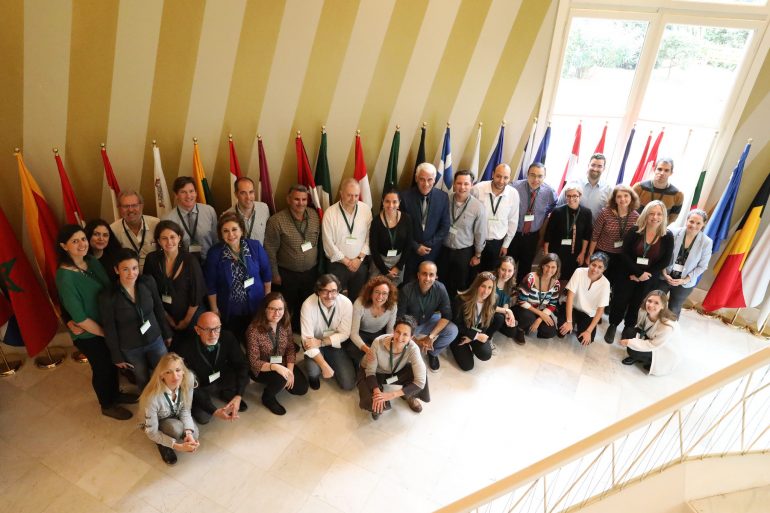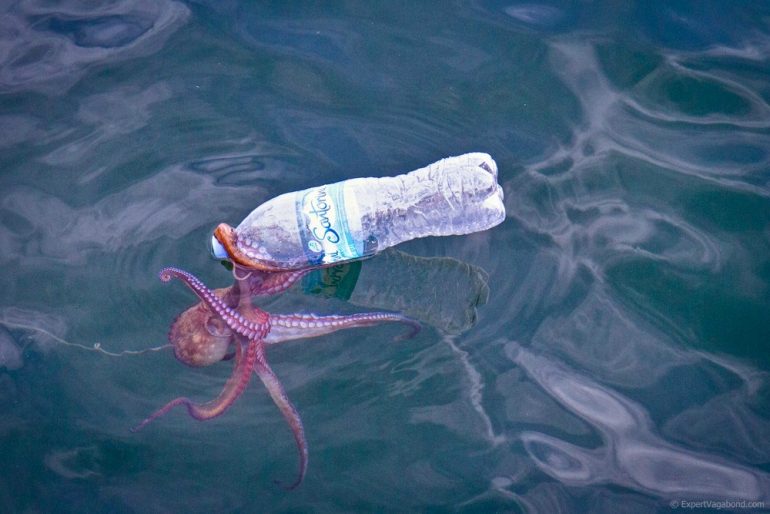Empowers successful clean-up in “the hinge of Africa”
 The local section of ICENECDEV – Cameroon organised a full action packed clean-up in the coastal village of Isobe Idenau. The community members received information on the effects of marine litter and how actions can be taken in order to prevent waste from ending up in the environment. Their joint efforts led to a collection of 1004,8 kg of plastic waste! Which means the coastal community made sure that they saved more than a ton of waste from ending up in the ocean and harming our marine life. The executive director Fongoh Eric and his organizing team ICENECDEV together with the local community worked hard to realise this goal!
The local section of ICENECDEV – Cameroon organised a full action packed clean-up in the coastal village of Isobe Idenau. The community members received information on the effects of marine litter and how actions can be taken in order to prevent waste from ending up in the environment. Their joint efforts led to a collection of 1004,8 kg of plastic waste! Which means the coastal community made sure that they saved more than a ton of waste from ending up in the ocean and harming our marine life. The executive director Fongoh Eric and his organizing team ICENECDEV together with the local community worked hard to realise this goal!
Discovery Networks Norway joined this plastic waste movement on their impact day and contributed to clean-up with quintuple global effect sponsoring clean-ups around the world. Thanks to their sponsorship, it led to new clean-up in a whole new region of Empowers journey- West Cameroon. Because of the geographical and cultural diversity of the country, it is often referred to as “Africa in miniature” and as “the hinge of Africa”.
Like many African countries, Cameroon exhibits the burdens of waste managements. Several factors such as inadequate financial resources, low levels of enforcement of regulations, lack of knowledge and poor governance often lead to poor waste management services. The local partner ICENECDEV (also accredited to UNEP) has actively been working towards combating marine plastic litter and micro plastics.
With partners they aim to increase awareness and actions on the environment along the coastal village communities along the west coast of Cameroon (Isobe, Idenau, Etissah, Batoke,Bakingli). «We are thrilled to be a part of this campaign with ICENECDEV to illuminate on the waste problem and incentivize plastic waste collection in the region. We humbly thank everyone involved for all their superb efforts in this collaboration».


 On the 21st of November the Seas, Rivers, Islands and Coastal Areas Intergroup (Searica) met with MIO-ECSDE and the informal Circle of Mediterranean Parliamentarians for Sustainable Development (COMPSUD) at the European Parliament in Brussels. This was a unique occasion where Members of the European Parliament and Members of Parliament of non-EU countries came together with marine litter experts, environmental NGOs, journalists and other key stakeholders to explore the next steps in achieving a litter-free Mediterranean Sea. The event was attended by some 65 participants from 20 or so countries.
On the 21st of November the Seas, Rivers, Islands and Coastal Areas Intergroup (Searica) met with MIO-ECSDE and the informal Circle of Mediterranean Parliamentarians for Sustainable Development (COMPSUD) at the European Parliament in Brussels. This was a unique occasion where Members of the European Parliament and Members of Parliament of non-EU countries came together with marine litter experts, environmental NGOs, journalists and other key stakeholders to explore the next steps in achieving a litter-free Mediterranean Sea. The event was attended by some 65 participants from 20 or so countries.  For a long time we have known that plastic in the ocean is a problem; we know the causes of it deleterious effects on the marine environment.
For a long time we have known that plastic in the ocean is a problem; we know the causes of it deleterious effects on the marine environment.
 Two days and five sessions of work were held with scientists and journalists to discuss the energy transition of the Mediterranean region, the circular economy and combatting plastic pollution. The program has been completed with two sessions dedicated to initiatives and tools for the journalistic profession, and to debating and exchanging experiences between professionals.
Two days and five sessions of work were held with scientists and journalists to discuss the energy transition of the Mediterranean region, the circular economy and combatting plastic pollution. The program has been completed with two sessions dedicated to initiatives and tools for the journalistic profession, and to debating and exchanging experiences between professionals. Mediterranean Members of Parliament and key stakeholders discuss the state of play and realistic steps forward (Brussels, November 21st, European Parliament).
Mediterranean Members of Parliament and key stakeholders discuss the state of play and realistic steps forward (Brussels, November 21st, European Parliament). During the World Environmental Education Congress the Canadian Government announced a clear commitment to tackle plastic marine debris in the ocean by joining the United Nations CleanSeas campaign.
During the World Environmental Education Congress the Canadian Government announced a clear commitment to tackle plastic marine debris in the ocean by joining the United Nations CleanSeas campaign.